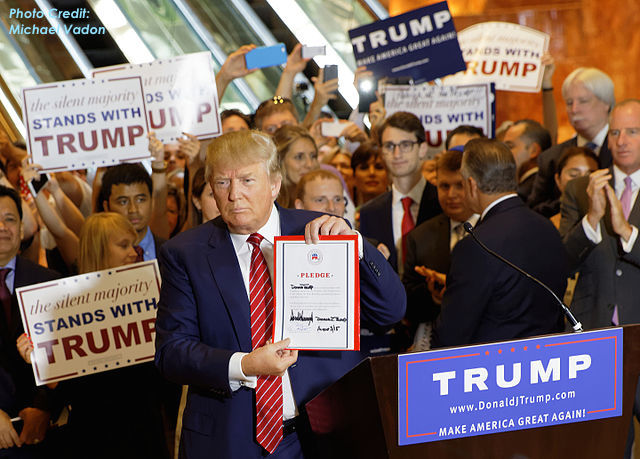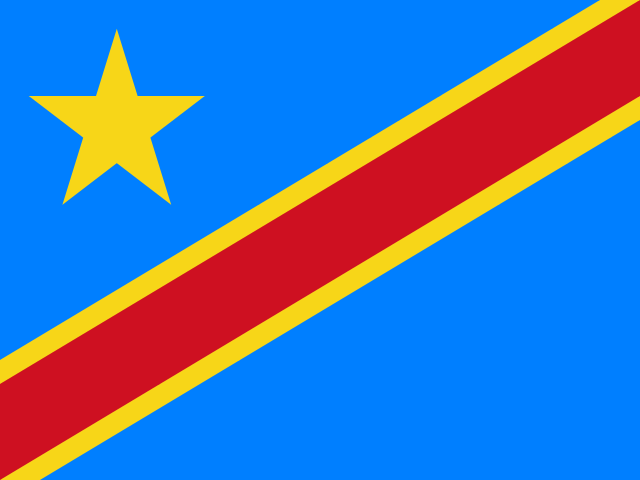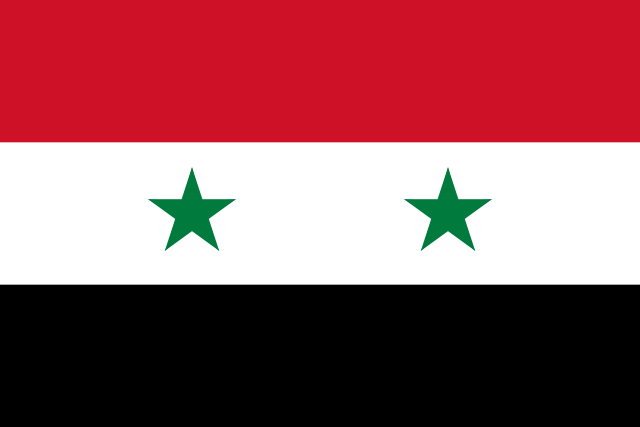How dare you try to send my generation to die in Syria because your first 14 years of the strategy have been colossal failures that made the world less safe than it already was.
Obligation
Massachusetts should accept civilian refugees of the wars in Syria, Iraq, and Afghanistan with open arms. Period.
Is there a delegate firewall against Trump? Maybe not.

A week or two ago, FiveThirtyEight posted a really elaborate procedural and statistical case arguing there may be Blue State firewall against insurgent conservative candidates like Trump (or Carson).
It would take too long here to explain the case fully, but the gist is this: First the calendar order places a bunch of Blue States relatively early (e.g. Massachusetts, Vermont, Hawaii, New York, Connecticut, Delaware, Maryland, Rhode Island). And second most of these particular states (e.g. New York) will award Republican delegates by Congressional district instead of statewide (which gives a huge delegate-per-voter bonus to states with dramatically fewer Republicans, since Congressional districts are drawn by population not number of Republicans). These factors both combine to give an early boost to delegates from Blue States.
The piece then argues that various insurgent candidates will be disadvantaged by this, to the benefit of a Bush or Rubio type establishment-backed candidate. While that might be true for a Ted Cruz, and maybe even Ben Carson, it’s not clear to me that’s necessarily true for some of them, particularly Donald Trump.
The two main flaws I see with this theory (of the firewall, not the math) after thinking about it since the article came out are:
First, it presumes that the remaining Republicans in very Blue States aren’t extremists themselves, which might not be true. It takes a lot of dedication to The Cause to remain registered R in a very liberal place. Maybe they’re Jeb Bush Republicans. But maybe they’re Ted Cruz Republicans. Even likelier, in my view? They’re Trump Republicans, which means whatever you want it to mean — hard right or moderate — because he’s running as the populist who is exactly what you want him to be. And that brings us to the other flaw.
Second, it presumes that genuinely moderate northeast Republicans don’t view Trump as one of them more than as a hard-right White Knight. For the record, I don’t think Trump is all that liberal, but if you really wanted to convince yourself he was a moderate New York City Republican on most issues, you easily could. (Especially based on his pre-campaign track record as a literal New York City Republican who was pro-choice and pro-universal healthcare.) I expect him to do quite well among Republicans in a lot of liberal northeastern strongholds.
As a result, I think that the delegate system aspect identified by FiveThirtyEight might not be a firewall against Trump but rather his coronation. Plus, I also think there are a lot of southern states and rural-Red but overall Blue-leaning northern states that will vote even earlier in the calendar, so we might not even make it to the end of April (to see what the supposed firewall states do) before this is wrapped up.
Let’s get it right this time.
A guest essay by Georgia. Republished with permission.
When 9/11 happened I was nine. Our parents told us what had happened but nobody bothered to explain it in terms a child could understand. We knew that some people flew a plane into a building, we knew that lots of people in a place called New York had died, and that was bad, and we knew that it had something to do with a place called Afghanistan. Nobody tried to explain that terrorism’s main goal is to spread fear among the people beyond the immediate victims of the attack, that it hopes to provoke a backlash so severe from the attacked society and government that more sympathy is generated for the terrorist’s cause. Nobody tried to explain what Islam was, what an Arab was, what a Pashtun was. Nobody tried to explain how an entire people are not responsible for the acts of their government, or the acts of a small group of people within their borders. And nobody tried to explain that terrorism has no religion, that the hijackers had as much claim to the Qur’an as the KKK has to the crosses they set on fire. I really think I could have comprehended all that at age nine, if someone had tried to find the words to explain it to me.
The adults in our lives failed us morally at that moment. We absorbed the racism and fear that was filtering down to us in an odd distorted form from the media, from the things we overheard grown-ups saying. We became mini-jingoists, parroting words we didn’t understand, and not one person, not even in the bluest of blue states, Massachusetts, had the moral courage to set us straight. I remember a friend of mine saying that when he grew up he wanted to “blow up Afghanistan,” and my father making an uncomfortable face and sort of dithering before delivering a lukewarm disapproval and changing the subject. I believe that my generation’s soul still bears the marks of that moral failing, and the world is a much worse place because of it.
Now I am an adult, and there are a lot of children in my life who are around the same age as I was back in 2001. I don’t know how much they will be hearing about what has happened in Paris, and I don’t know exactly how I am going to respond to the questions they have. But I do know that I am going to go into school on Monday with a determination not to repeat the silence, the cowardice, the atavistic nationalism that failed my generation. I would ask that my friends, especially those who interact with children, but even those who do not, make a conscious choice to spread love and understanding this week. Educate yourself with the facts, assuage the fears of those around you, stand up to racism, and do not be silent. Let’s get it right this time.
Ted Cruz wants us to bomb more civilians
Arsenal Bolt: Quick updates on the news stories we’re following.

MQ-1 Predator unmanned aircraft. (U.S. Air Force photo/Lt Col Leslie Pratt via Wikimedia)
Think Progress — Ted Cruz’s horrid quote on combating “radical Islamism” after the Paris attacks…
It will not be deterred by targeted airstrikes with zero tolerance for civilian casualties, when the terrorists have such utter disregard for innocent life.
1. I wonder where he thinks we have pursued a zero-tolerance-for-civilian-casualties air campaign policy. Certainly not against ISIS.
2. He emphasized “targeted airstrikes” as part of the problem. Does he want old-fashioned carpet bombing?
3. Responding to terrorism with “utter disregard for innocent life” by bombing civilians seems like the route to a pretty big and unending cycle of violence.
What a hot take, Ted.
Ending Kabilaland
Arsenal Bolt: Quick updates on the news stories we’re following.

This is the latest quick update in my series on multi-termism trends in Sub-Saharan Africa this year.
Can President Joseph Kabila, son of President Laurent Kabila, be persuaded to step down soon in DR Congo?
If tiny Burundi is turning into a nightmare, chronically unstable DR Congo risks returning to its apocalyptic horrors of the civil war years if President Joseph Kabila delays elections by several years to extend his term. By contrast:
If Kabila can be convinced to allow an orderly transition of power in the DRC, it will make clear that such an improbable feat can be done just about anywhere — in Burundi, in Rwanda, and across the river in Brazzaville.
Doomed to fail: The new Syria talks
If you want to know why the Syria conflict can’t be ended by willpower or the snap of a fingers, this is a good analysis by Gareth Porter. The latest peace talks don’t include any significant armed combatant party in Syria – not any stripe of rebels, not the government, and certainly not ISIS. Practically speaking, on the side of the anti-regime forces, there is nobody that the rest of the world is comfortable negotiating with who could actually control any armed fighters if a deal was reached. The Syrian government (or even just the Army) doesn’t want to negotiate a deal either because they have no interest in signing a deal that brings al Qaeda/Nusra to power, and they are currently the primary non-ISIS opponent.

Flag of the Syrian government.



